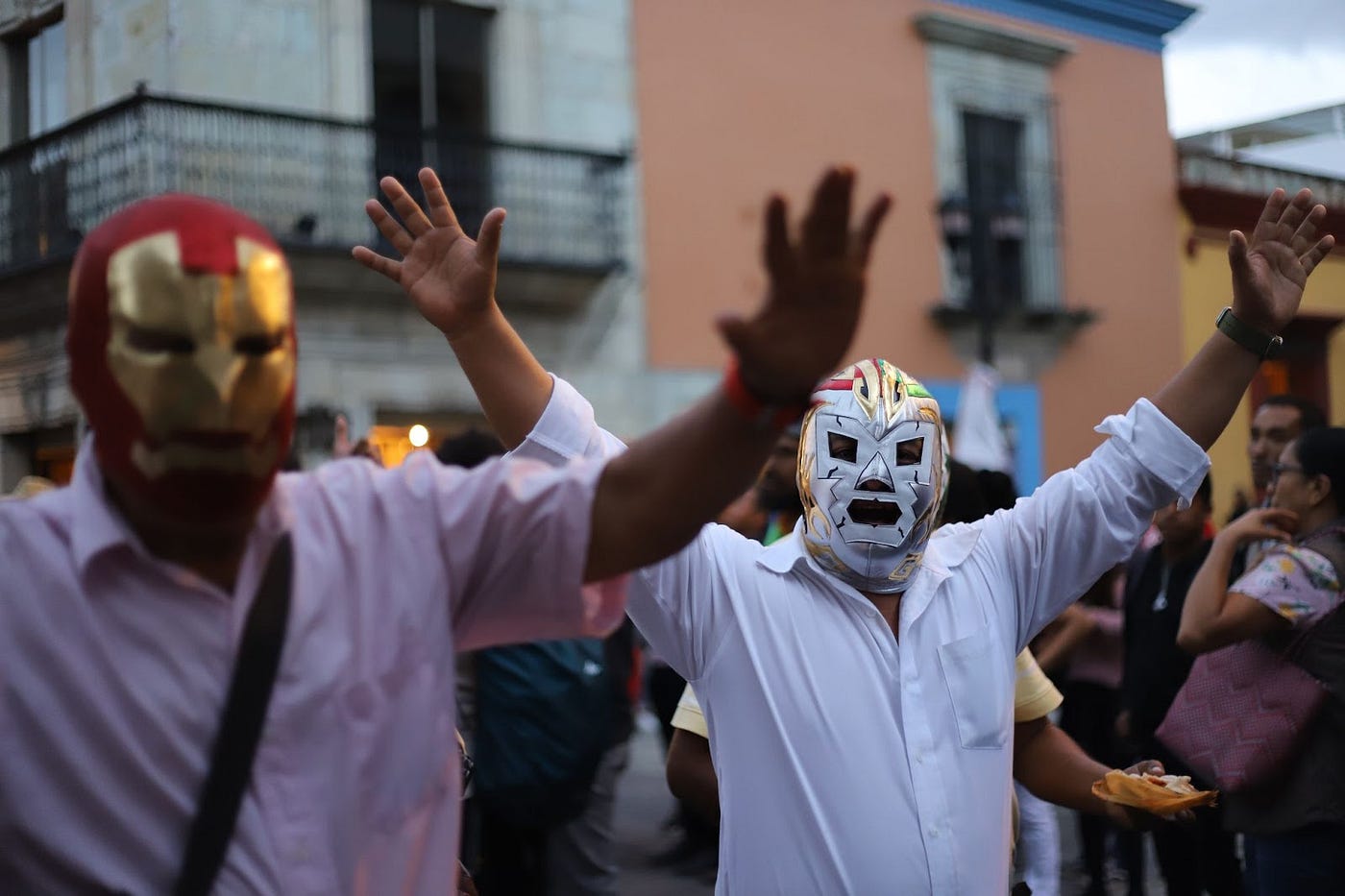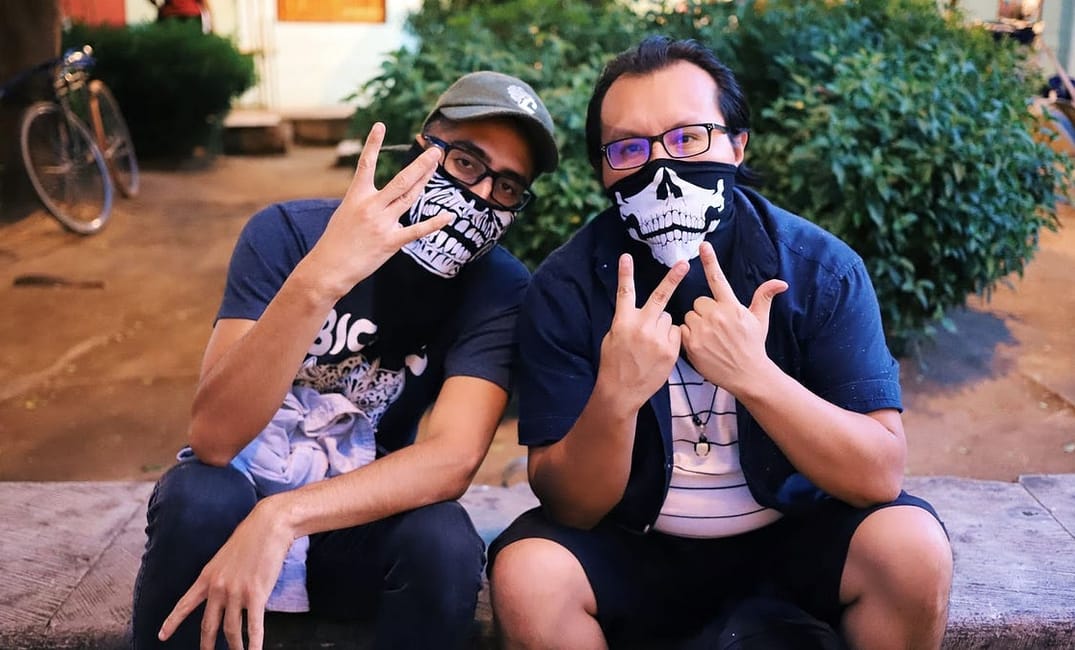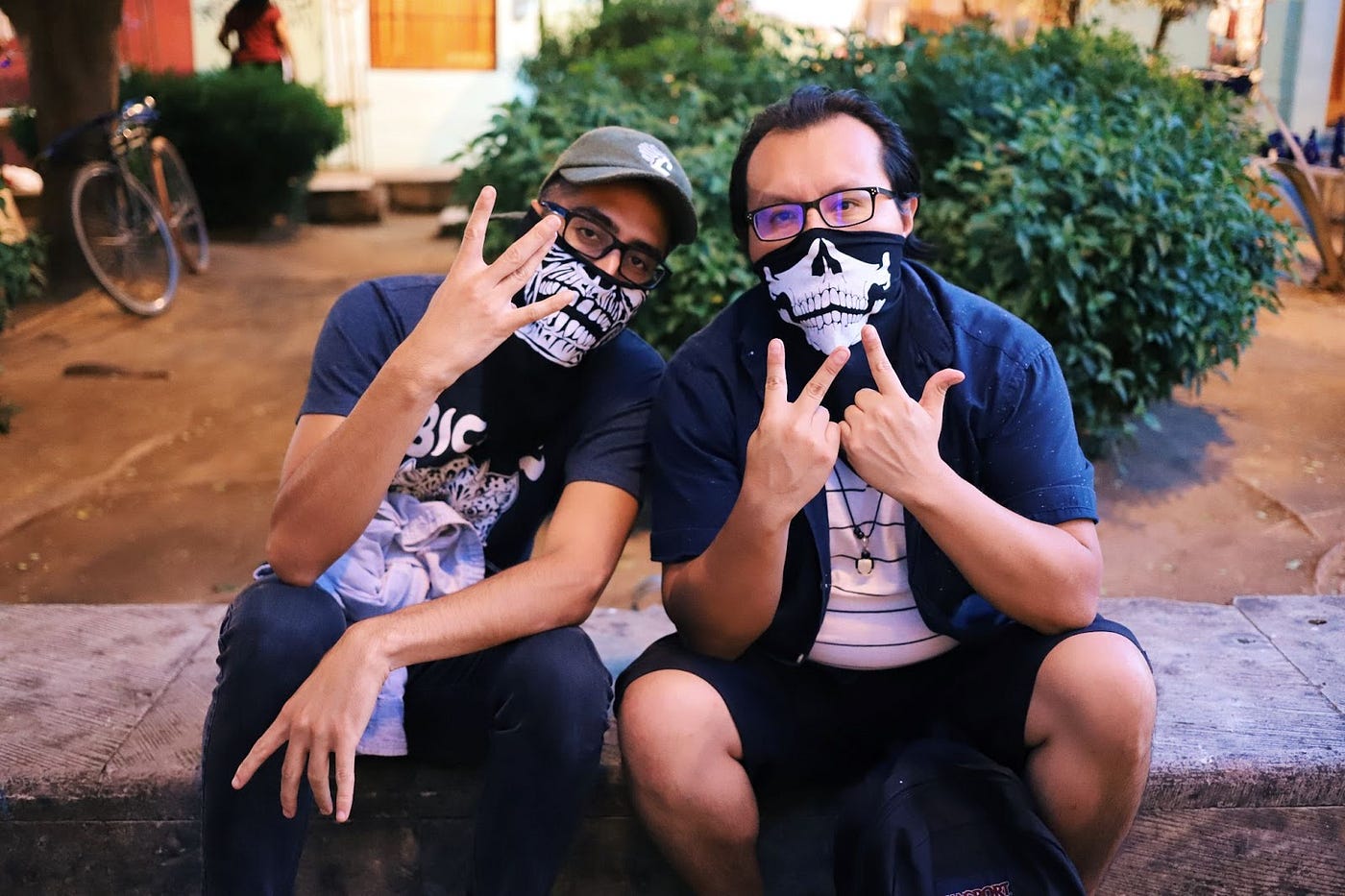
This side
I’m currently writing this from my house in the East Bay Area. But when Covid-19 hit, I was nearly eight months into living with my family on the other side of the U.S-Mexico border — and I was unsure about returning.
First, some context: Mexico isn’t the paradise or warzone that the U.S. media constantly simplifies it as. It has elements of paradise and warfare, like most nations, but it’s much more complex than what the news regularly portrays. Like most Latin American nations, it contains extreme wealth along with rampant poverty, privilege underpinning political corruption, indigenous traditions balanced by modern capitalism, and plenty of suburban teens who simply meet up to play Call of Duty. Mexico is neither a single-narrative cartel battleground, nor an exotic getaway. It has many dimensions.
Depending on who you are and what your intentions are, Mexico will reveal a multitude of experiences. And all of this remains true during the pandemic.
Sign up for The Bold Italic newsletter to get the best of the Bay Area in your inbox every week.
The same could be said of the U.S. — there is no singular image or definition to capture what Covid-19 has been like for so many diverse residents here. But having lived in both countries, I would argue that Mexico is more complicated and misunderstood than we are, and their struggles are more visibly apparent. Here’s the simple reality: U.S. citizens have more safety nets and social comforts than the average Mexican citizens. And because of that, I have learned how to appreciate the simple things in my American life, especially during the past year.
Rewind with me: In the summer of 2019, I was emboldened enough to quit my teaching job in Oakland after saving my money for nearly a decade. My wife and I traveled around Mexico while writing, researching, and teaching from abroad. As Mexican Americans with immigrant parents, we wanted to experience our culture with family members and friends who were living outside of the States, so we dedicated one year to be with them in everyday moments. We understood our fortunate position, and I acknowledge how privileged it is to be able to move through the world with a glossy U.S. passport. I don’t take that for granted, and I never have.
My first book had just been published at the time, and I was feeling high off the energy of arriving in a new place to meet new artists and learn about life beyond California. Being in different parts of La Republica with my abuelo, mom, tias, and cousins taught me that no matter how hard my life has ever felt at home, I would always have the essential basics — and much more — as a middle-class U.S. citizen. This includes running water, a roof, electricity, material wealth, a vehicle, a driver’s license, a college education, and a form of income. I quickly saw how my friends and family in Mexico — even those with the most comfortable lives and college training — didn’t have the same level of guaranteed opportunities. And during Covid, our differences have only become more apparent.
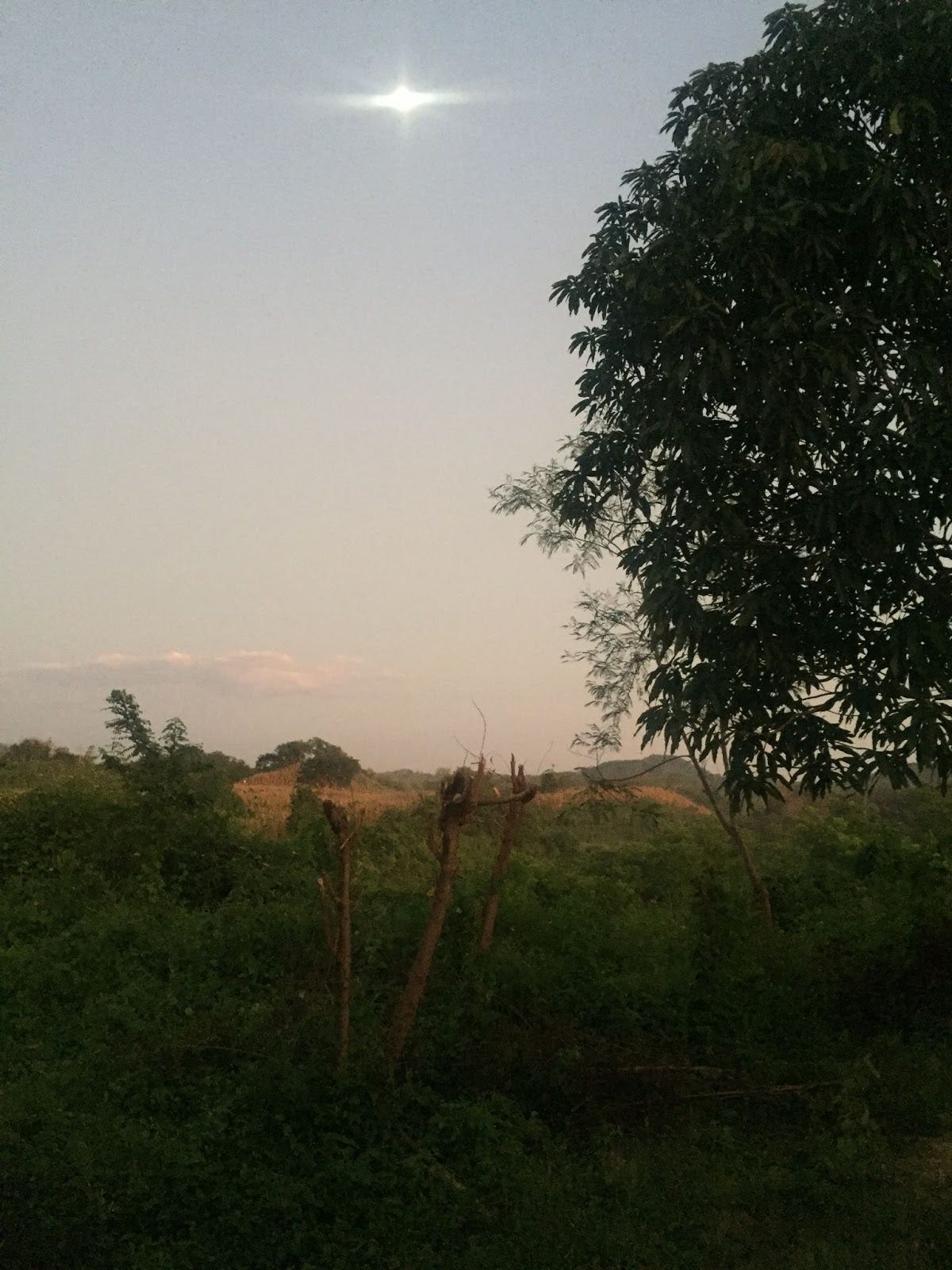
When news of Covid first began to surge across the world around February of 2020, I’d just received my dual-citizenship through my mom, who is a born-Mexican citizen, and I was looking forward to another six months in the country. Like everyone, I was unsure and incredulous about the unknown virus and its implications. Going back to the East Bay to live with my wife’s family was the most logical thing for us to do, but I wasn’t ready to leave Mexico. We were temporarily staying at a Airbnb house in Mexico City, where European and Canadian visitors continued to come and go, even weeks after coronavirus had been announced as a globally paralyzing virus. No one knew what would happen in those first months, when the taqueros continued to sell food outside and the metro was jam-packed with maskless and hustling Mexicanos.
One night, I was drinking mezcal with my best friend, Adrian. Neither of us was aware that it would be our last night out together. If we were to be separated, it wouldn’t be our first time. I’d grown up with him since 6th grade, and from then on, he and his brothers have been hella cool with me and my brother. There was a point in high school where people would literally ask me where Adrian was if they didn’t see him by my side. It was a dope friendship in every sense and one we were lucky to have because it carried us through our most difficult years of adolescence. Adrian is my ride or die.
When we reached our mid-teen years, I realized that as much as we were alike, we were apart in the most inhuman and systemic ways: I was a U.S. citizen, and he was not. This discrepancy became more apparent as we started to work, drive, and apply for things like financial aid. As time passed, his family’s deportation became inevitable.
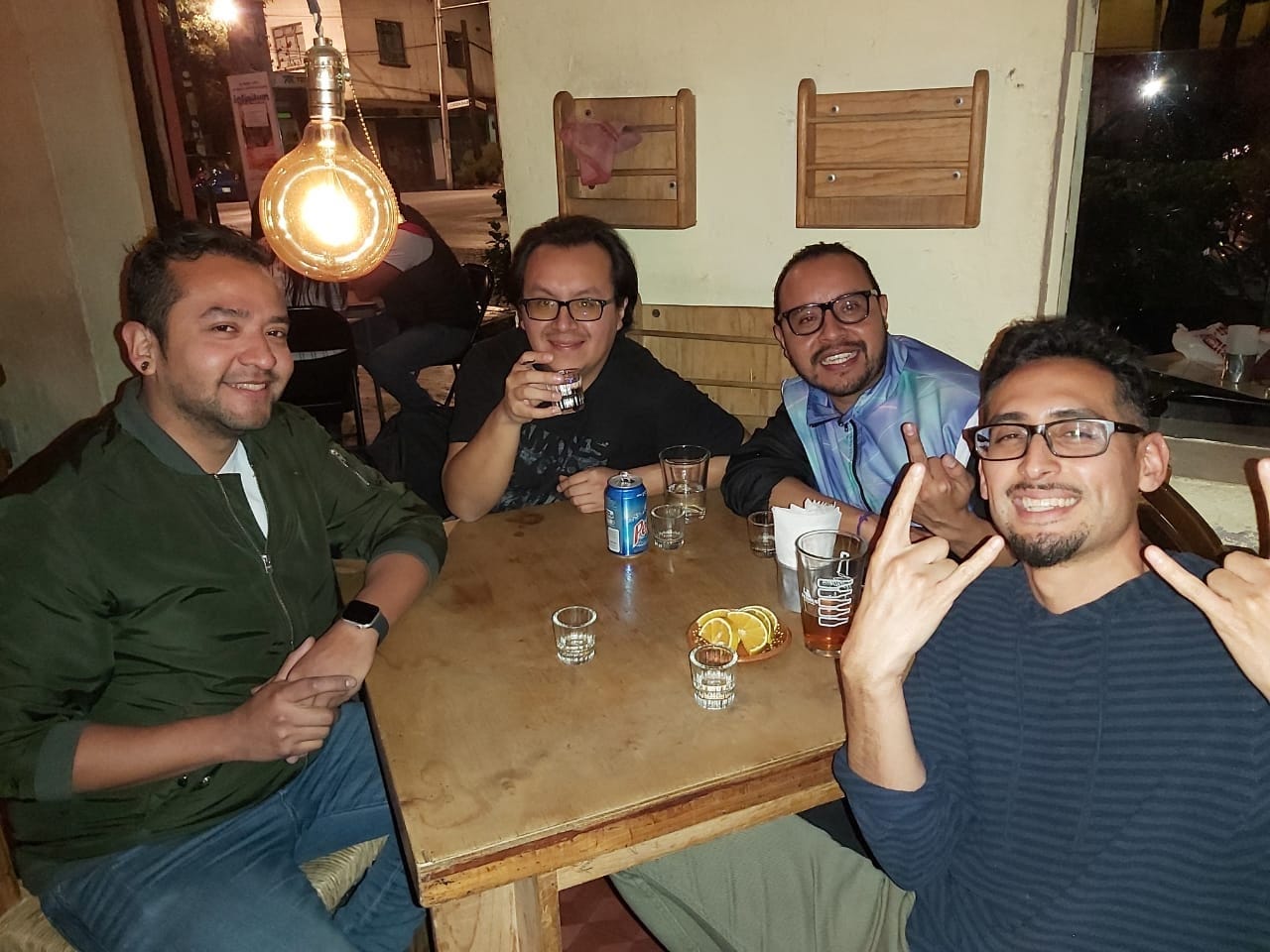
Eventually, I reached the University of California, Berkeley, as a community college transfer student, and as I sat in my dorm room, Adrian shared the news with me that he and his family were being sent back to Mexico — even though he had lived in the Bay Area since the age of three. This was before the time of Dreamers, so he fell into a group of young Americans who would not be protected. From that point on, Adrian had to redefine his life in a new country he had never known — while I continued with my regular U.S. lifestyle.
Since then, I’ve gone back to visit Adrian and other family members in Mexico more than once, and we regularly keep in touch. Because of his ability to speak and write in English, he has been fortunate enough to secure a relatively well-paying job with a U.S. company, and he works from home now. He admits that his life is above average for someone living in his neighborhood — which is on the outskirts of Mexico City, where his family is from — but make no mistake about it: He lives in conditions that most of us wouldn’t be immediately adjusted for. Having experienced a relatively smooth 12 months of work since I returned to the Bay Area — where I’ve been since March 2020 — I wanted to know more about how life has been for Adrian and his community during the past year. So, we did what everyone does now — we Zoomed, with chelitas in hand.
That side
Adrian is sitting in his apartment. He had to download Zoom since he had only used it once in the past year — and that was when he talked to me and my brother at the very onset of the pandemic. One of Adrian’s older brothers, Jumbo, comes on screen and takes the computer to say what’s up to me. He tells me it’s one of our high school friend’s birthdays here in the Bay. It feels like I’m talking to brothers I haven’t seen for a year, and I already miss them even more.
Adrian lives with his four siblings, two parents, and Jumbo’s wife and son. They have two apartments that they share, and they are often in each other’s spaces for work, gaming, and socializing. As Adrian tells me, he has it good compared to others in his neighborhood. After he says that, his internet shortly cuts off and he goes off-screen; this happens multiple times during our conversation.
Adrian has been blessed with receiving an education in the U.S., and his language fluency, he explains, is what gives him the advantage to work as an outsourced project manager for an IT company based in North Carolina. Though he only makes a fraction of what he would working in the States, it’s a comfortable amount for his life in Mexico, and he knows it.
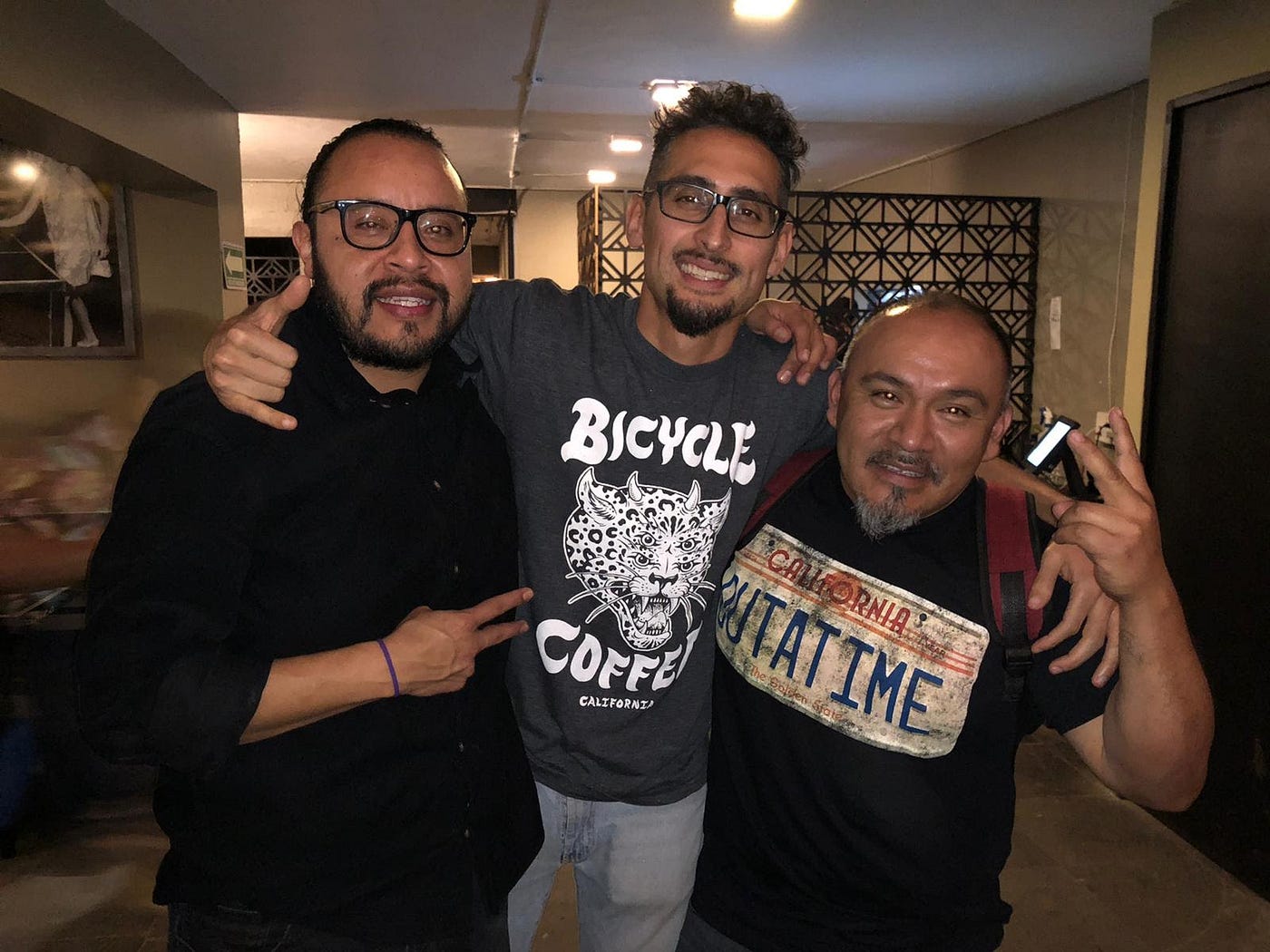
Before Covid, Adrian would commute into Mexico City’s center — a one- to two-hour bus, van, and subway ride, depending on traffic — and would lead his team at the office. Now, like many of us, he is forced to stay in the confines of his room and doesn’t leave out of concern for his parent’s health.
“It’s like I’m trapped inside a cubicle all day,” he tells me, a familiar feeling that most of us can relate to here in the Bay. At the same time, Adrian acknowledges that for most of the blue-collar workers in his community, it’s not their circumstance: “Not everyone can just drop what they are doing and work from home. Lots of people have to hustle in person and keep going to the city every day. They are at the highest risk of getting infected and bringing that back to the pueblos, but what choice do they have? I don’t blame them.”
Even the educated class isn’t safe. Because Covid has forced so many companies to downsize, Adrian outlines how many of his former colleagues — Mexican college graduates — have been cut from staff. Many businesses have shut down, and the ways of making income have become more complicated for everyone, his parents included. At one point, Jumbo even lost his job as a telemarketer for a U.S.-based travel company but was able to get hired shortly after — mostly due to his English fluency from a lifetime of experience living in the Bay Area.
Adrian and his siblings teach me about the realness of Mexico, before and during Covid. When I tell Adrian that my grandma, wife, and I have already received our vaccinations, he laughs and tells me that he isn’t scheduled to receive one until August or October of 2021. And even then, he doubts his local government will distribute the vaccination properly: “Dude, this is Mexico. I probably won’t get that shit until next year. Seriously, I am prepared to live like this for a whole ’nother year.”
That’s when it hits me more, and I realize how truly fortunate we are to be in the Bay Area, a region with ultra wealth, technological resources, and an active government. I’ve been in the pueblos that Adrian is talking about and lives in, and in some places, families literally use buckets of water to shower. Even in the more developed cities, like Xalapa, Veracruz, where most of my relatives live, there are certain days where the water gets shut off to preserve resources. So, how long do you think it will be before these places are registered and mobilized for vaccinations?
Interestingly, though, many of the outskirt areas of Mexico may not need the vaccination as immediately as we do because the influx of outsiders is already minuscule in those regions. That’s why it pisses me and Adrian off to see so many U.S. citizens escaping their boredom and traveling to Mexico for vacations because we both know that the workers there have no choice but to accommodate these selfish tourists and put themselves at risk from outside contact. It’s good for the economy, sure, but it’s a form of exploitation and power that isn’t called out enough and one that I’ve seen many Californians take advantage of.
When Adrian tells me he won’t have water for a few days because of a regulated shortage, I can only think about how easy my life is here in San Pablo, at the bottom of Richmond’s Hilltop. It feels luxurious in many ways, even though it’s a low-income, ungentrified neighborhood that most would avoid and consider undesirable by Bay Area standards — the hood.
We joke about out situations. Adrian tells me a story about a time his abuelo had to escape to the mountains because of serious trouble he got into at a young age — and how he lived in the jungle for weeks before being able to return home. We laugh, because we all have those abuelos and tios who tell their outrageously unbelievable stories, but we also laugh because we know how real those before us had it, and it gives us a sense of comfort and peace to know that we are healthy, able-bodied millennials who shouldn’t complain about our realities.
We come to the conclusion that both of our Covid experiences have similarly felt like a cage but that my cage has been made of gold while his has been scraped together from whatever materials are available. We play, but there is truth to this reality — during a pandemic or otherwise. And that’s what I miss most about my Mexican side: They carry on no matter what and always find a way forward without letting it stop their ability to live fully. It’s something I remind myself about every day and try to live by, even when I’m on this side of the wall.
